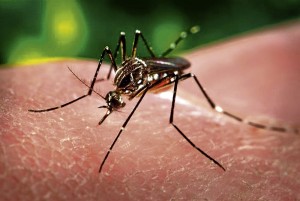An experimental dengue fever vaccine appears to be closer than ever to gaining approval for human use. French pharmaceutical giant Sanofi announced last week that its candidate vaccine—which has undergone a second and final efficacy study in Latin America—has been proven to be 95.5-percent effective in treating severe cases of dengue as well as 80.3-percent effective in reducing instances of hospitalization.
The study involved 20,875 children aged 9-16 years across Brazil, Colombia, Mexico, Honduras and Puerto Rico.
The result was consistent with the first efficacy study initiated in Malaysia, Thailand, Vietnam and the Philippines wherein the vaccine was found to be 89-percent effective against severe cases of dengue and 67 percent effective in reducing hospitalizations. The Southeast Asia part of the efficacy study involved 10,275 children aged 2-14 years.
Efforts to develop a dengue vaccine have been complicated by the fact that the disease is caused by four distinct virus “serotypes,” DENV 1, 2, 3 and 4. To be truly effective, a vaccine must target all four. According to Sanofi Pasteur, in both trials in Southeast Asia and Latin America, the level of efficacy varied between each dengue serotype: 50 percent for type 1 in Southeast Asia (also 50 percent in Latin America), 35 percent for type 2 (42 percent in Latin America), 78 percent for type 3 (74 percent in Latin America) and 75 percent for type 4 (77 percent in Latin America).
Helpful
The candidate vaccine, which could be available in the second half of next year, according to Sanofi, should prove beneficial in the Philippines where dengue fever remains one of the leading causes of childhood hospitalizations. In fact, of the 73,815 dengue cases recorded in the country by the Department of Health’s National Epidemiology Center from Jan. 1 to Oct. 4, majority of those infected were children, 5 to 14 year old (38.91 percent). Moreover, of the more than 200 who died from dengue, most of them were also children.
Globally, approximately 500,000 people—almost 90 percent under age 15—are hospitalized and suffer from dengue’s very painful, debilitating symptoms, which can take weeks or even months to recover from. Millions more, however, are infected but are not hospitalized, according to the World Health Organization.
If left untreated, dengue could lead to deadly complications such as plasma leakage, fluid accumulation, respiratory distress, severe bleeding or organ impairment. Approximately 24,000 people around the world each year die as a result and most of them are children or young adults.
This is why Sanofi said it invested more than $1.7 billion (P76.5 billion) in the past 20 years in developing candidate vaccines and, in fact, built a dedicated factory near Lyon in southern France, which has the capacity to produce 100 million doses a year.
At the moment, all that an individual and the community can do to minimize the risk of infection is to take steps to avoid mosquito bites throughout the daylight hours, but especially around dawn and dusk. An effective personal insect repellent applied regularly as required during the day is the most important “weapon” in their arsenal.



